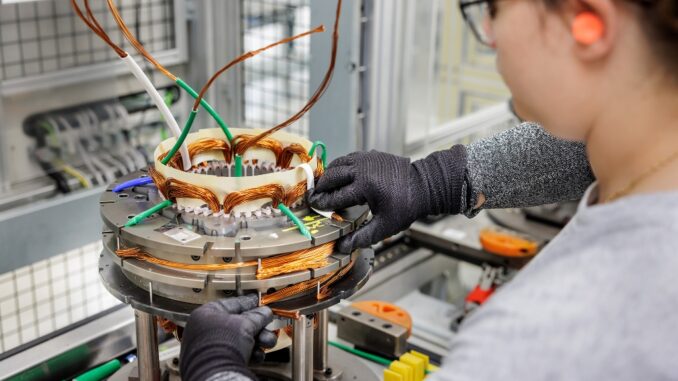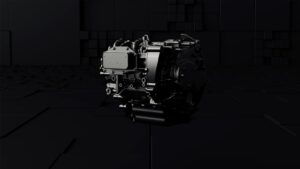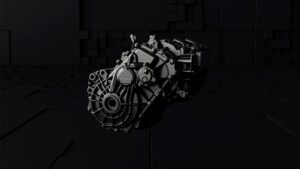
Renault Group and Valeo are combining their expertise to create E7A, a new electric motor generation, more powerful, more compact and uses no rare earths.
As a result of the regular conversations between the carmaker and the equipment manufacturer, this partnership that started in 2021 soon grew into a co-development journey. They each pooled one key part (Renault Group the rotor, Valeo the stator) as well as their expertise in technology development and production. The are currently fine-tuning their E7A high-tech motor.
Rare-earths-free and environmentally friendlier
 Renault pioneered electrically excited synchronous motors (EESMs) in production vehicles when it introduced ZOE in 2012.
Renault pioneered electrically excited synchronous motors (EESMs) in production vehicles when it introduced ZOE in 2012.
This know-how puts it in a position to supply an all-in-one architecture for the new E7A motor (to make it 30% more compact for equivalent power than the current motors equipping the Megane E-Tech electric and the Scenic E-Tech electric) and the rare-earths-free rotor technology (to shrink its carbon footprint by 30%). By using a wound rotor instead of permanent magnets, Renault is improving the engine’s output, securing its supply chain and avoiding reliance on countries that produce rare earths and magnets.
More power and efficiency
 This third-generation motor will also help shorten battery charging times as the system will be built for 800 volts instead of 400 volts, the standard today. And the stator by Valeo will boost power and efficiency. The new E7A motor, as a result, will unleash up to 200 kW. It will also supply more power without consuming more electricity. And the E7A motor uses hairpin technology to assemble copper wires, a Valeo specialty since 2010.
This third-generation motor will also help shorten battery charging times as the system will be built for 800 volts instead of 400 volts, the standard today. And the stator by Valeo will boost power and efficiency. The new E7A motor, as a result, will unleash up to 200 kW. It will also supply more power without consuming more electricity. And the E7A motor uses hairpin technology to assemble copper wires, a Valeo specialty since 2010.
At this stage, the engine is still under development. There are other stages to go through before it can reach serial life. The mass production of this new-generation engine will start at Renault Group’s Cléon factory at the end of 2027.
Source: Renault Group











Be the first to comment